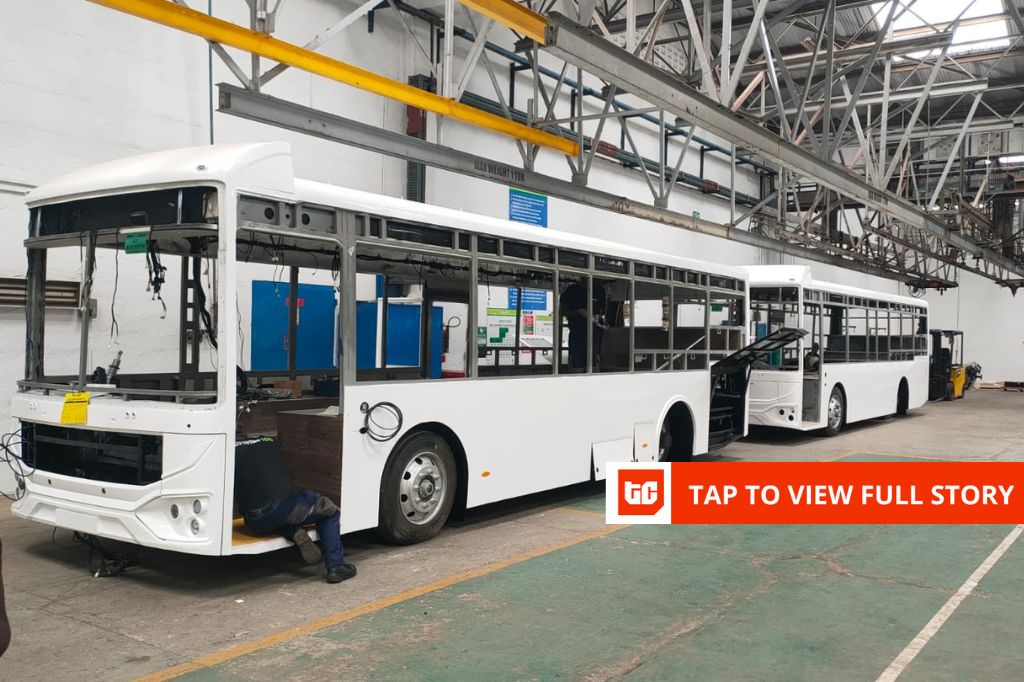BasiGo, the Nairobi-based electric mobility startup, plans to put 1,000 battery-powered buses on Kenya’s roads by 2027, seeking to cut emissions from the diesel-fuelled minibus system that forms the backbone of urban transport.
The company has assembled 53 buses locally, with another 27 in production at its new line in Thika, 50km north-east of Nairobi. Built in partnership with Kenya Vehicle Manufacturers, the facility is the country’s first dedicated electric bus assembly line and part of an investment of more than KES3.5 billion ($27 million). Output is expected to rise to 20 buses a month by 2026.
On Friday, the company told that its new KL-9 model is designed for Nairobi’s congested commuter routes, with a 300kWh battery that can be charged in two hours. Major operators, including Citihoppa, Ummoinner, and Rembo Shuttles, have already incorporated the buses into their fleets.
“BasiGo has built a deep understanding of E-Bus requirements for the Kenyan market, said the company’s co-founder and CEO, Jit Bhattacharya. We are proud to be working with an industry leader like King Long to introduce a state-of-the-art electric bus that we believe will redefine public transport operations in Kenya.”
Slow uptake
Kenya’s reliance on informal “matatus” makes electrification potentially transformative. However, uptake has been slow and hampered by high capital costs, a lack of charging infrastructure, and an uncertain policy framework. Unlike Rwanda, which has removed import duties on electric vehicles, or South Africa, where utilities are backing charging corridors, the government has yet to pass a national EV strategy.
Kenya is seen as relatively well placed for e-mobility, given that more than 90% of its electricity comes from renewable sources, mainly geothermal and hydropower. Kenya Power, the state utility, says it has sufficient off-peak capacity to charge thousands of EVs.
Road transport accounts for more than 40% of Kenya’s total energy consumption and is the fastest-growing source of emissions, according to the Energy and Petroleum Regulatory Authority (EPRA). The country spends over $5 billion annually on fuel imports, equivalent to about 15%, making the sector highly vulnerable to swings in global oil prices.
Kenya currently has an estimated 9,000 registered EVs, according to the National Transport and Safety Authority. That compares with about 600 fully electric vehicles in Rwanda, where generous incentives are offered, and more than 10,000 in South Africa, the continent’s largest EV market.
BasiGo is developing a leasing model to overcome cost barriers in which operators pay to use the vehicles while the company provides maintenance and charging.
Founded in 2021, BasiGo has raised $63.1 million from investors including SBI Investment, Novastar Ventures, Trucks Venture Capital, Africa50, and Moxxie Ventures. Its most recent financing was a $24m Series A led by Africa50.
The company also plans to export buses to other African markets, including Nigeria and Tanzania, where pressure is growing on governments to cut urban air pollution and reduce reliance on imported diesel.
Mark your calendars! Moonshot by is back in Lagos on October 15–16! Meet and learn from Africa’s top founders, creatives & tech leaders for 2 days of keynotes, mixers & future-forward ideas. Get your tickets now: moonshot..com










